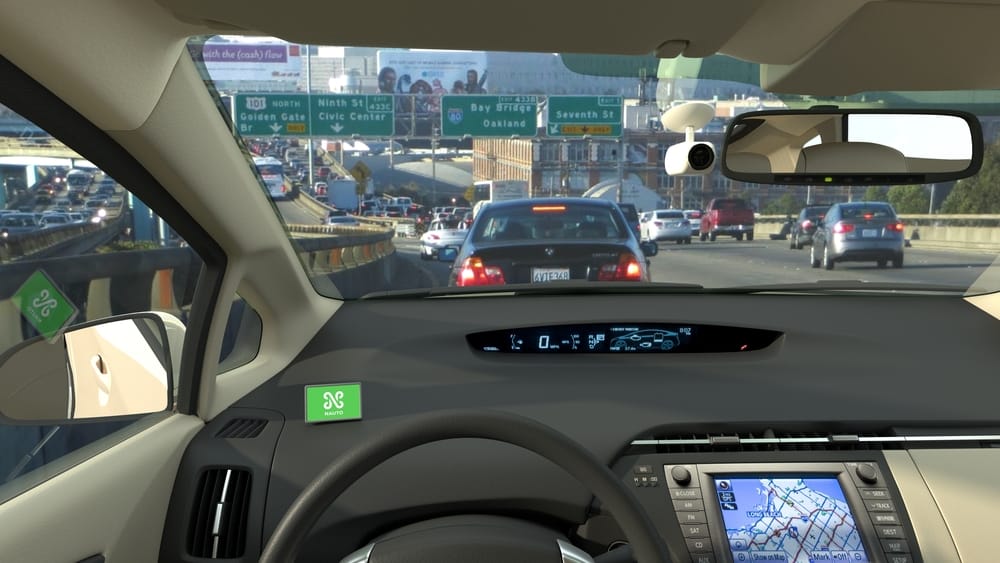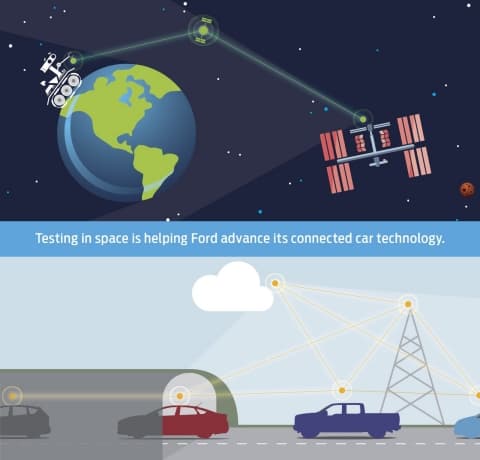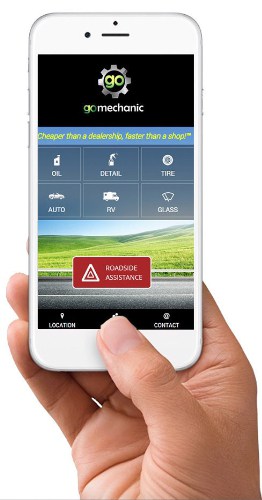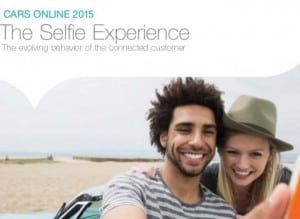 A recent survey by Capgemini reports that car buyers expect an increasingly individualized experience, requiring OEMs and dealers to further communicate and share customer data. The 16th annual Cars Online report: ‘The selfie experience: The evolving behavior of the connected customer” shows that consumers expect more and better communication during the buying period. People expect more communication and want good contact with their car dealers. Consumers expect to be excited to be loyal to the car brand. Consumers are highly interested in autonomous driving and are willing to pay for it.
A recent survey by Capgemini reports that car buyers expect an increasingly individualized experience, requiring OEMs and dealers to further communicate and share customer data. The 16th annual Cars Online report: ‘The selfie experience: The evolving behavior of the connected customer” shows that consumers expect more and better communication during the buying period. People expect more communication and want good contact with their car dealers. Consumers expect to be excited to be loyal to the car brand. Consumers are highly interested in autonomous driving and are willing to pay for it.
The report found:
• A wider variety of online sources are utilized when choosing a car, with dealer/manufacturer websites (49%), search engines (43%) and traditional dealerships (48%) now supplemented by web forums (19%), social media pages (12%) and smartphone apps (9%).
• The use of more varied and non-traditional online information sources is particularly driven by the Asian markets (India/China), where 80% are significantly influenced by positive social media comments.
• The physical dealership still plays a critical role for consumers, with 95% visiting one or more dealerships before purchase as people still want a tactile experience when buying a car.
• Consumers want instantaneous personalized online services when buying a car and for post-sale experience too with 95% expect a response to requests within 24 hours; for growth markets, 69% want one in less than four hours.
• While consumers desire more personalized on and offline services, 45% have concerns over data privacy.
• There is a strong correlation between customer satisfaction and loyalty particularly for dealers – Only 10% of customers, not satisfied at all, say they would likely or very likely buy their next car from the same dealer. 87% of highly satisfied customers would purchase the same brand again and 85% would buy from the same dealer.
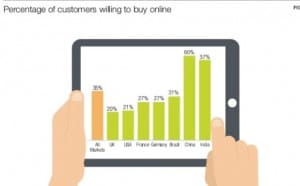 While the younger generation (18-34 year olds) has a higher affinity with online channels, the study reveals that even ‘digital natives’ want physical touch-points for purchase. Customers demand technical expertise from dealers and expect more personalized and frequent communication between purchase and delivery. Half expect at least weekly notifications on delivery updates while the majority (58%), want to be able to adjust their order after the initial purchase. Most consumers (80%), interested in connected car features, are prepared to allow access to their data, provided there is transparent information on how it’s used – showing high levels of trust in OEMs. Nearly all (99%) of customers who feel very informed about the use of their data are satisfied with their dealer or OEM. However, surprisingly as many as 37% in mature markets say they have not been contacted at all by their dealer or manufacturer in the last year.
While the younger generation (18-34 year olds) has a higher affinity with online channels, the study reveals that even ‘digital natives’ want physical touch-points for purchase. Customers demand technical expertise from dealers and expect more personalized and frequent communication between purchase and delivery. Half expect at least weekly notifications on delivery updates while the majority (58%), want to be able to adjust their order after the initial purchase. Most consumers (80%), interested in connected car features, are prepared to allow access to their data, provided there is transparent information on how it’s used – showing high levels of trust in OEMs. Nearly all (99%) of customers who feel very informed about the use of their data are satisfied with their dealer or OEM. However, surprisingly as many as 37% in mature markets say they have not been contacted at all by their dealer or manufacturer in the last year.
“Accustomed to personalized services and an experience that combines on and offline channels in other sectors such as retail, consumers are demanding the same in the automotive industry both pre- and post-car purchase. Digital communication channels such as social media, insights into behavior made possible by data analytics, and the desire for added services means OEMs and dealers should provide such an experience,” Kai Grambow, Global Head of Automotive at Capgemini, commented. “However, in order to achieve this, there must be a shift in mentality away from the segregation of manufacturing, sales and aftercare. Currently there is little data sharing between OEMs and dealers – but this is a real opportunity for the industry. OEMs and dealers need to co-operate and use the right analytical technology to provide a more comprehensive 360 degree customer experience.”
The report also details a significant appetite for advanced new technologies and connected services, providing OEMs and dealers with fresh opportunities, but also challenges. Half of consumers (47%) want to use or are already using connected car features, with over three quarters (80%) of these saying it is important for their next car. However, the threat of a cyber attack is still a significant concern for some consumers (38%), who say it is a reason not to use these features. Looking ahead, half of all consumers surveyed (49%) would be interested in buying a car from technology giants like Apple or Google, even if they are currently satisfied with their current brand. This increases to 65% among younger customers and those in the growth markets – including China (74%) and India (81%), compared to more mature markets such as the UK (26%) and the US (29%). Consumers, particularly in the younger age category, are equally willing to pay significantly more for autonomous driving with 79% of respondents expressing interest – rising to 95% in growth markets compared to mature markets (68%). Positive benefits such as stress reduction and safety are seen to outweigh the negatives.
Research Methodology
Cars Online 2015 is Capgemini’s annual research into consumer behavior and expectations across the entire car purchase lifecycle (including interest and purchase through to ownership and re-purchase). It also covers consumer views on the innovation areas of “connected vehicles”, “autonomous driving” and alternative “mobility services”. This year’s 16th annual edition of the report, had 7,553 consumers participate in the survey. All respondents were “in-market”, planning to buy or lease a car in the next 12 months. Countries represented were Brazil, China, France, Germany, India, the United Kingdom (UK), and the United States (US). Capgemini worked with FreshMinds, an insight and innovation consultancy, to conduct this survey. All analysis and interpretation of the data was done by Capgemini. The research was conducted in June 2015.


